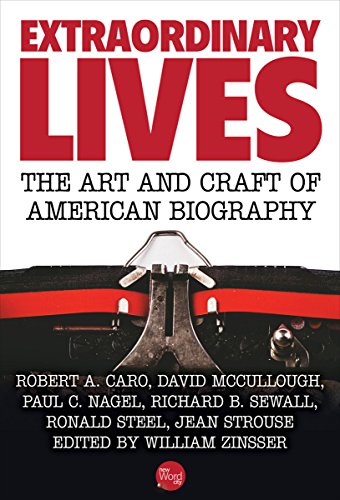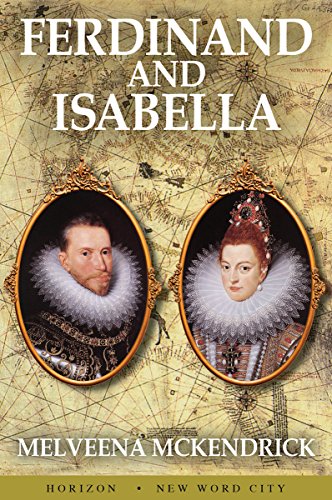-
Cortés and the Aztec Conquest
Irwin R. Blacker
eBook (New Word City, Inc., Oct. 20, 2015)In three years, the Spanish conquistador Hernán Cortés, leading a few hundred Spanish soldiers, overcame a centuries-old empire that could put tens of thousands of warriors on the field. Even after his god-like reputation had been shattered, and his horses and cannons were no longer regarded as supernatural, his ruthless daring took him on to victory. Yet in the end, his prize was not the gold that he had sought, but the destruction of the entire Aztec civilization.
-
Jamestown
Marshall W. Fishwick
eBook (New Word City, Inc., March 7, 2017)In December 1606, when they set sail from London for the Virginia coast, the people aboard the three ships anticipated the best. They would establish a British colony, find gold, and discover a water route to Asia. But what awaited them was far different - fire, hunger, sickness, death, even cannibalism. Here, from the noted historian Marshall W. Fishwick, is the dramatic story of Jamestown and the struggle of its leader, Captain John Smith, who, with the help of Pocahontas, daughter of the Algonquian chief Powhatan, succeeded against all odds.
-
Jackson
Ralph K. Andrist
eBook (New Word City, Inc., June 17, 2014)Andrew Jackson - war hero and spokesman for the frontier, the first president from west of the Alleghenies, the first born in a log cabin - fought his way to the White House. Once there, he stood for the rights of common citizens, founded the Democratic Party, expanded the powers of the presidency, paid off the national debt, and postponed civil war by prevailing against the advocates of states’ rights. By today’s standards, however, Jackson was hardly politically correct: He also owned many slaves on his Tennessee plantation and sponsored the Indian Removal Act, which triggered the brutal forced march of tens of thousands of Native Americans to Oklahoma. Here is his story.
-
The American West: Cowboys
Grayson Wyatt
eBook (New Word City, Inc., June 14, 2016)Forged in dime novels, Wild West shows, and Hollywood films, the image of the American cowboy is largely a myth. But behind it were real men whose hard work and hard play, stoic toughness, and code of honor helped tame the American West. The epic cattle drives that were so much a part of the cowboys' heyday lasted only an astonishingly brief two decades. But the cowboy is still a basic part of the American character. Here, from historian Grayson Wyatt, is their surprising and little-told story.
-
The Erie Canal
Ralph K. Andrist
eBook (New Word City, Inc., Feb. 25, 2016)The Erie Canal was a preposterous idea. Even President Thomas Jefferson, usually ahead of his time, believed that it could not be built for at least a century, and yet, the Erie Canal came to be just as its planners had thought it would. For the first time in the history of the United States, a cheap, fast route ran through the Appalachians, the mountains that had so effectively divided the West from the East of early America. With the canal, the country's fertile interior became accessible and its great inland lakes were linked to all the seas of the world. Here, from award-winning historian Ralph K. Andrist, is the canal's dramatic and little-told story.
-
Marco Polo
Milton Rugoff
eBook (New Word City, Inc., Feb. 4, 2015)Marco Polo's thirteenth-century journey from Italy to Asia marked a turning point for Western civilization. He returned with stories of exotic people, tremendous riches, and the most powerful ruler in the world – Kublai Khan. The explorer told of inventions ranging from gunpowder to paper money. The intellectual ferment and cultural diversity he described helped move Europe out of the Dark Ages and into the Renaissance. In his lifetime, people scoffed at his stories. But as this book explains, he changed the world.
-
Captain Cook
Oliver Warner
eBook (New Word City, Inc., Aug. 28, 2016)In his three extraordinary voyages, Captain James Cook made history. He was the first to discover Australia and the Hawaiian Islands and the first to circumnavigate New Zealand.By the 1700s, England, eager to expand its realm of trade, promoted exploration of all the unclaimed regions of the world. The eighteenth century, the age of reason and enlightenment, required a new kind of explorer: not a rover or a plunderer or a seeker of adventure for its own sake, but a master of navigation and seamanship. Captain James Cook filled the bill.No one ever surpassed Cook's record. From South America to Australia, from the ice islands of the South Pacific to the fogbound Bering Strait, lay thousands of miles of islands, atolls, and ocean that Cook charted.
-
Extraordinary Lives: The Art and Craft of American Biography
William Zinsser
eBook (New Word City, Inc., Jan. 14, 2016)Here, six eminent biographers explain the pleasures and problems of their craft of reconstructing other people's lives. The result is a book rich in anecdote and in surprising new information about a variety of famous Americans.David McCullough takes us along on the exhilarating journey to Missouri to find "The Unexpected Harry Truman."Richard B. Sewall describes his twenty-year search for the elusive poet, Emily Dickinson.Paul C. Nagel tells us about "The Adams Women" - four generations of women he came to admire while writing his earlier biography of the Adams family.Ronald Steel, author of a much-honored biography of the nation's greatest journalist, recalls in "Living with Walter Lippman," how the life of the biographer can become entwined with that of his subject.Jean Strouse, on the trail of J. P. Morgan, discusses the fact that "there are two reasons why a man does anything, a good reason and a real reason."Robert A. Caro reveals the frustrations of trying to unearth the true facts about Lyndon Johnson, a man who went to great pains to conceal them.Together, these six biographers take us through a gallery of unique American lives - most of them moving, many of them startling, and all of them extraordinary.
-
Maximilian I
Hugh Trevor-Roper
language (New Word City, Inc., Feb. 21, 2017)Nineteenth-century German historians portrayed Maximilian I as a fascinating but enigmatic dignitary - the first modern ruler and the last medieval knight, the model humanist, a true Renaissance man. He has since been ridiculed as a spineless misadventurer, a Don Quixote whose head was full of magnificent fantasies and unattainable ambitions. Here, in this essay by the acclaimed British historian Hugh Trevor-Roper, is Maximilian’s extraordinary story.
-
Charlemagne
Richard Winston
eBook (New Word City, Inc., Oct. 29, 2015)From his father, Charlemagne inherited only a part of the Frankish kingdom - little more than half of modern France and the Low Countries. Before his astonishing career had ended, he had conquered half of Europe and his armies had marched through Italy, Germany, and Spain. In a glittering Christmas Day ceremony in Rome, in the year 800, he was crowned the new Holy Roman Emperor.More than the heroic conqueror of Western Europe, Charlemagne was an intense and thoughtful human being. His succession of five wives brought him a palace full of children. So warm was his love for his daughters that he could never bear to see them married away from the court, even though enticing alliances with other rulers were offered them.A deeply religious man, Charlemagne became the protector of orthodox Christianity against medieval heresies. A patron of learning, he established schools and brought artists and scholars to his court to work and study. As a result, most classical literature comes down to us in copies of books made in Charlemagne's time.Here, from National Book Award winner Richard Winston, is his remarkable story.
-
France: A History
Marshall B. Davidson
eBook (New Word City, Inc., March 19, 2015)"Every man has two countries," Henri de Bornier once said, "his own and France." Indeed, France has captivated us for centuries. Here, in this compelling history from acclaimed historian Marshall B. Davison, is its story: from prehistory to its conquest by Julius Caesar; from its invasion by the Franks, who gave us the name we use today, to the reign of Charlemagne; from the rule of the Bourbon monarchs, who reached their apex under the Sun King, Louis XIV, to the bloody days of the French Revolution; from the ruthless rise and reign of Napoleon Bonaparte to the brutal Nazi occupation during World War II.
-
Ferdinand and Isabella
Melveena McKendrick
eBook (New Word City, Inc, Oct. 26, 2015)King Ferdinand and Queen Isabella of Spain are most often remembered for the epochal voyage of Christopher Columbus. But the historic landfall of October 1492 was only a secondary event of the year.The preceding January, they had accepted the surrender of Muslim Granada, ending centuries of Islamic rule in their peninsula. And later that year, they had ordered the expulsion or forced baptism of Spain’s Jewish minority, a cruel crusade undertaken in an excess of zeal for their Catholic faith.Europe, in the century of Ferdinand and Isabella, was also awakening to the glories of a new age, the Renaissance, and the Spain of the “Catholic Kings” - as Ferdinand and Isabella came to be known - was not untouched by this brilliant revival of learning.Here, from the noted historian Melveena McKendrick, is their remarkable story.